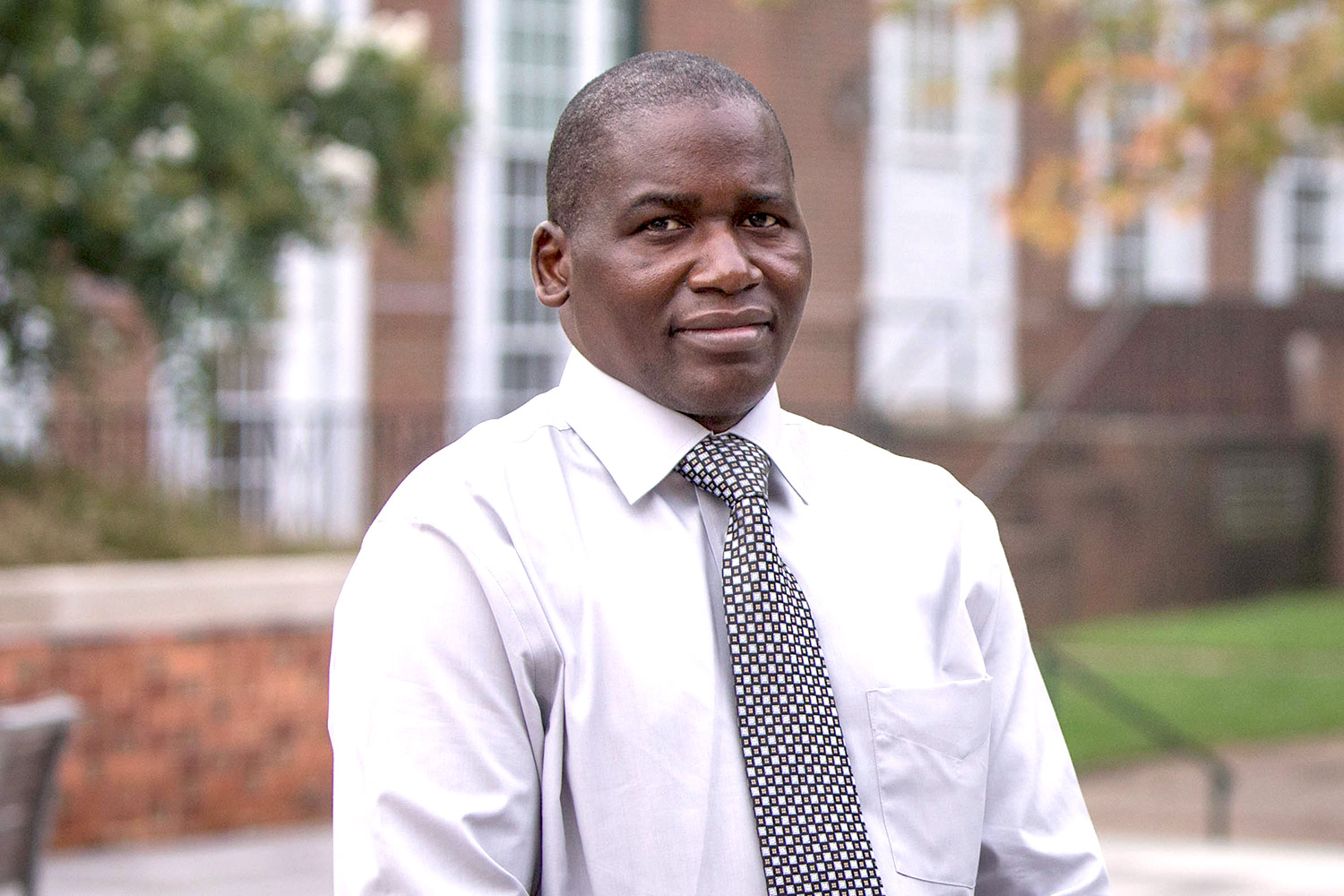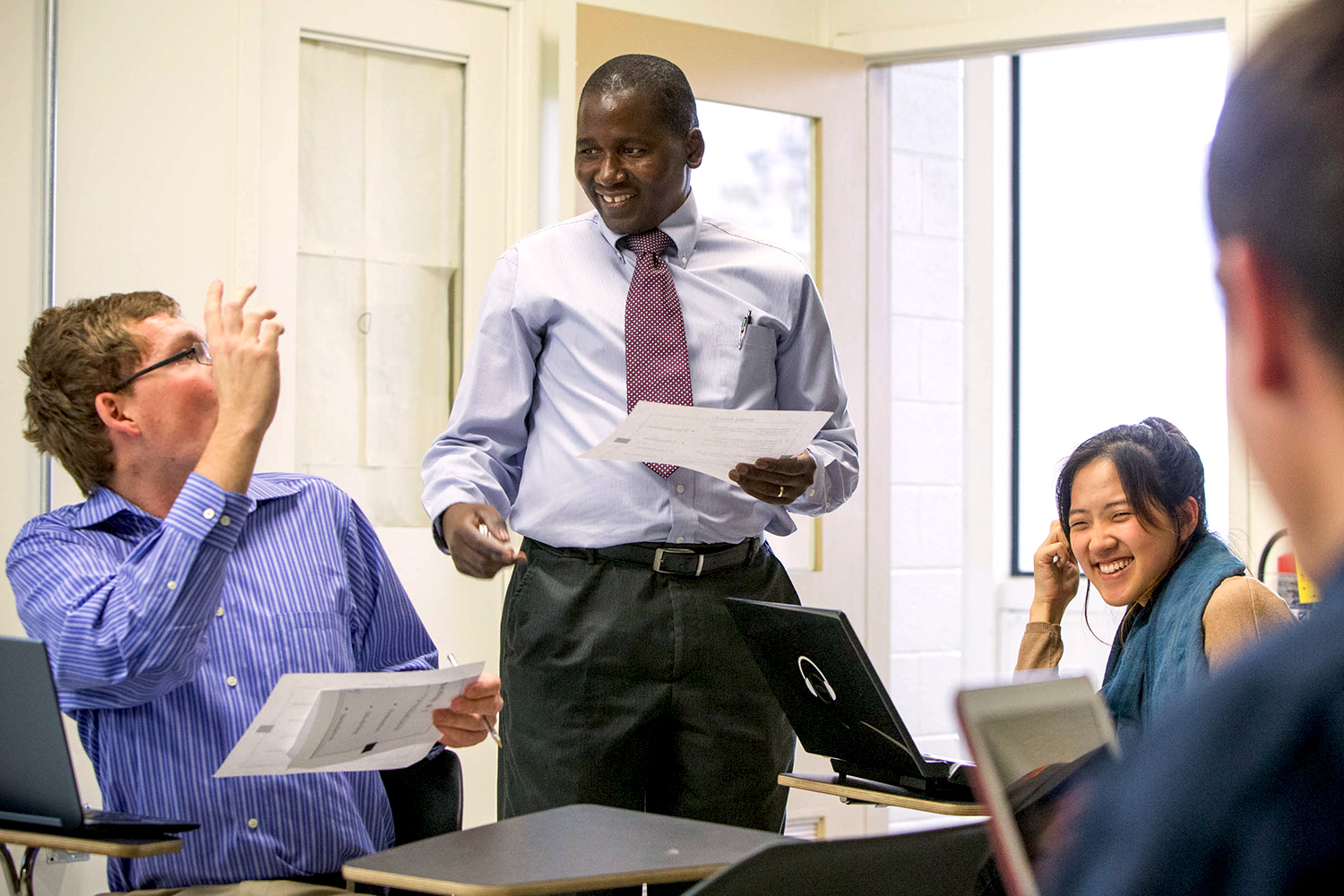Science education curricula in elementary, middle and high schools across the country are getting makeovers.
In 2011, the National Research Council of the National Academy of Sciences released “New Framework for K-12 Science Education,” a set of objectives that all students should be gleaning from their science courses.
The framework was followed up in 2013 with the creation of the Next-Generation Science Standards, which are part of a national movement to incorporate engineering design into kindergarten through 12 science education.
Through a National Science Foundation research grant, researchers in the University of Virginia’s Curry School of Education and School of Engineering and Applied Science are aiming to develop a model for training pre-service science teachers to integrate engineering design into science teaching.

Mumba said the first step in incorporating more engineering into science curricula is to expose teachers to engineering concepts.
“We can’t expect teachers to teach science from an engineering perspective when they have no training in engineering design,” said Frackson Mumba, an associate professor in the Curry School and the principal investigator of the project. “So, we at UVA are taking a step in trying to solve that challenge and prepare our teachers to effectively integrate engineering design in science classrooms.”
A large number of states have already adopted the Next Generation Science Standards, while others are still considering the transition.
Charles Pyle, director of communications at the Virginia Department of Education, said the state is preparing to revise the public schools’ Science Standards of Learning, and the revision will include a review of the Next Generation Science Standards.
As a training ground for future teachers nationwide, Mumba said UVA should prepare Curry School students for the new expectations related to engineering design and science education they may face in their classrooms.
“We are investing in the future of science education by investing in our pre-service science teachers,” Mumba said. “They can’t apply something that they don’t understand. Teachers don’t teach what they don’t know.”
Through the research project, Mumba and his team of Reid Bailey, an associate professor in the Department of Systems and Information Engineering, and Curry School professors Jennifer Chiu and Ji Hoon Ryoo, will train a cohort of approximately 50 education students by investigating their current knowledge, developing their foundations in engineering concepts and measuring their pedagogical content knowledge. Then, they will assess the impact that this training has on students in K-12 classrooms.
By equipping future teachers with the tools to include engineering design in science curriculum, Mumba said that the resulting increased exposure to engineering could influence K-12 students’ potential engineering and science career choices.
“Research shows that the formation of engineers doesn’t start in college; it starts in school,” Mumba said. “We want to prepare citizens of the 21st century, and engineering teaches skills that help students identify the real problems that humans are facing.”
Additionally, Mumba said that developing a model to train pre-service teachers will enable them to be leaders in their school systems who can help guide their colleagues in the integration of engineering design and science. But the first step toward developing the framework is conducting meaningful research regarding exactly how to prepare pre-service teachers to perform this task.
“We want to train future teachers by giving them a foundation in engineering and strategies to teach it in the science classrooms,” Mumba said. “The only effective way to do that is to do research and to find out the impact of this training of our pre-service teachers and how the knowledge they gain from the training impacts the students’ learning in the schools.”
Mumba, along with his team, completed a successful pilot study last spring, encouraging them to move forward with their research.
“Students participating in this project will be trained in the state-of-the-art engineering integrated science pedagogy, which will allow them to lead the engineering design in science education in the near future,” Ryoo said.
Ultimately, Mumba said that in order to create lasting impacts in K-12 schools, change must begin with the country’s future generation of educators.
“Teachers are the agents of change,” he said. “And we believe in changing our science teachers in order for them to be able to change the lives of thousands of kids.”
Media Contact
Article Information
August 9, 2016
/content/researchers-students-meet-intersection-engineering-and-science

